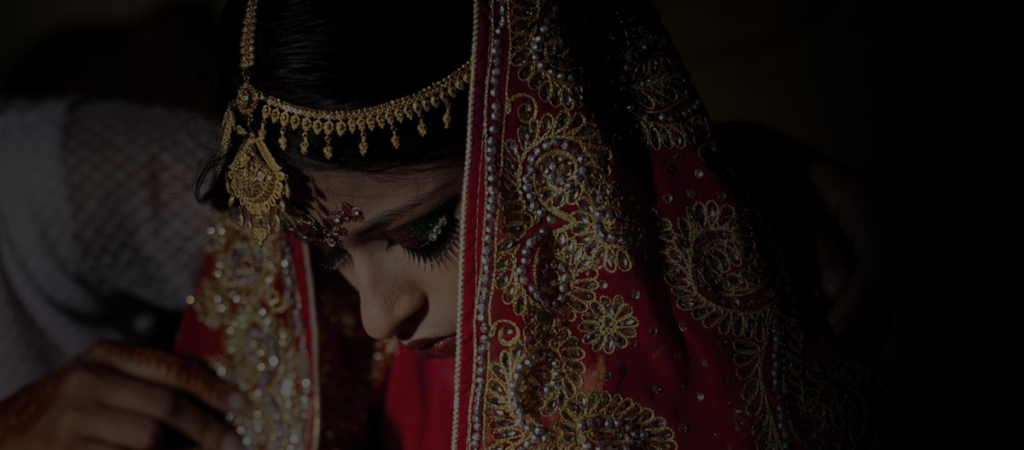Somewhere in Islamabad from what I understand, a girl is preparing for her wedding. Maybe she is booking a hairdresser or shopping for new clothes and jewelry. Maybe she is visiting friends and family and receiving their blessings and well wishes. Maybe she is fantasizing about her new life as a new bride and the impending move to the United States. Maybe she wonders what kind of man this cousin of hers is that her relatives and relations have chosen for her to marry. Maybe she hopes he is romantic, gentle, and patient. Maybe she is excited and maybe she is terrified.
She is a 23 years old or so college student. Tall and fair, I imagine with long, dark hair but otherwise, typical, non-descript. Her name, depending on the spelling, is reminiscent either of lesser angels or a young lioness. What she doesn’t know as she prepares for her wedding and thinks of her future in U.S, is that she is a victim of culture just as much as I am. The difference, though, is that it is her culture and not mine. Nevertheless, I find myself in the middle of an ancient custom, overwhelmed by grief and a broken heart.
The situation has given me cause to ponder the following question: How often do we allow culture to take precedence over Islam? As an outsider and a convert, I always assumed that as Ahmadis we were above the old culture versus Islam dilemma. The rhetoric has always been so lofty matching and befitting the values espoused by Islam, the Prophet, and by the community’s founder.
Surely, when presented with certain facts, an Ahmadi Muslim would choose righteousness and responsibility over cultural concerns or fears of what-will-people-say and what-about-my-honor? But no, Ahmadis are people after all, and majority who reside in the U.S. come from an ancient and beautiful culture at the northern reaches of the sub-continent. Arranged marriage is still the norm as is arranged marriage between cousins.
What this lesser angel does not know is the groom is the man I have loved for the last year and a half and his attentions are divided at best. I converted and was disowned by my family for it. I left my mother’s house and lived alone. We talked about marriage and he said he would convince his mother no matter how long it took. I prayed and I waited and my love for him grew. I did my own fantasizing about a home and a family and an active life in the Jammat (community). I saw all of the potential in us as a couple to serve our Jamaat (community) and make ourselves assets to it. Again and again we faced challenges but I stayed steadfast.
He asked for his mother’s blessing and was denied it. She said she had already promised him to her niece and so it was a matter of honor. It did not matter what he wanted or what I wanted. It did not matter what I had given and sacrificed to be his wife. It did not matter that Islam’s explicit guidance on this very matter and encouraged parents to hear their children when they came to them asking to marry for love. It did not even matter that Holy Quran would forbid his union in Surah 24: An Noor.
I changed my religion, lost my family, lost my security, believed all his promises, remained steadfast, experienced so much loss and emotional pain, and ultimately, all that mattered was culture and what the family would say.
His parents threatened to disown him even though his religion would tell him to find his courage and Taqwa and do the honest and righteous thing. He said he loved me and would never hurt me. He thanked me for my kindness and endless forgiveness but these attributes were no match for culture. God himself was no match for culture. What hope can there be for the perpetuation of a strong Jamaat, if its people cannot put God or religious teaching above all else? What hope is there for us Ahmadis when culture becomes our shirk?
Perhaps the concerns of one heartbroken and scared woman may seem petty. With news of violence and need devastating populations across the globe, my story seems insignificant or even indulgent by comparison. By comparison mine is just a little sorrow, but my sorrow is reflective of a larger problem within our Jamaat and it threatens the sanctity of the bond between us and our God. As long as culture remains more important than Islam’s wisdom and the dictates of the one almighty God, we will continue to have a formidable enemy at our gate.

